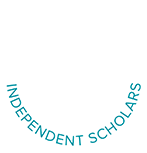Real name:
Website:
Biography:
I started my professional life in the museum world before migrating to archives with a brief stop as a small business owner. Along the way, I earned Masterʻs degrees in Museum Studies, Library and Information Science, and History. At my most recent long-term archival job, I spent significant time working with heavily used 19th and 20th-century collections relating to the realities of managing large estates including items such as daily garden logs, household maintenance receipts, and travel documents. As many of our collections had been rejected by other institutions, I began to think about what historic labor details get put into the historic record.
Thinking I needed a break from archival work, in 2017 I was accepted to the Gastronomy (Food Studies) program at Boston University. I ended up writing a now implemented long-term plan for the departmentʻs culinary library, assisting with the accession and processing of a significant menu collection to the same library, and co-publishing a paper on the challenges faced by interdisciplinary scholars when using linked online museum catalogs. I also started developing a talk for food studies students on how to approach digital and physical archival collections that I will hopefully present in Spring 2021. During the program, I had the opportunity to attend two classes at Rare Book School in Virginia to aid in my cookbook research. In short, I never left the Information Science world.
Recently graduated with an MLA, I am currently working on organizing my research done in the Gastronomy program for future work and learning the proper Digital Humanities terminology to explain several of the data-sets and projects I developed as part of my research on cookbooks and menus. The overall goal of my research is to develop a vocabulary to better discuss how labor (especially what has been defined as womenʻs work) can be better recognized in archival and museum collections materials and to illustrate importance of studying literature/media aimed at children.
